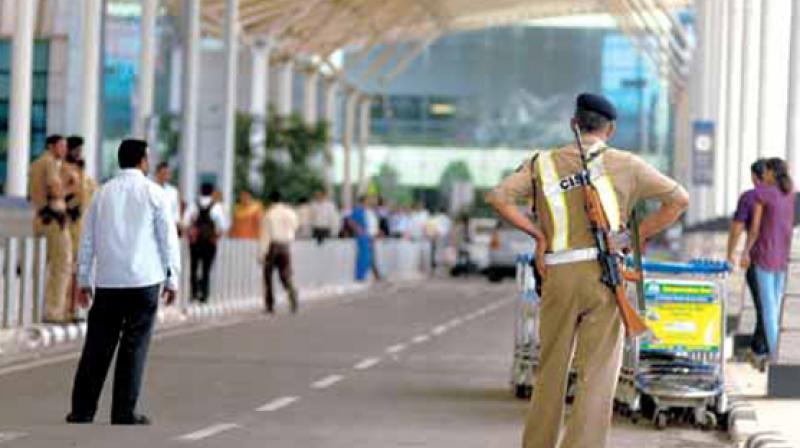Govt looking at unified command of CISF for airports: Centre
There are over 90 operational airports and around 74 of them have scheduled operations of flights.

New Delhi: Government is working to put in place a unified command of CISF for airports, Union Minister Jayant Sinha said on Saturday, as it looks to have an integrated system for aviation security.
The Central Industrial Security Force (CISF) is in charge of security at various airports in the country.
Stressing that the most important priority is safety and security, the Minister of State for Civil Aviation said a lot of things are being done in this regard.
"One of the most important things we are doing there is actually trying to go for a unified command of CISF," Sinha said, adding that an integrated system needs to be looked at.
"Instead of security being looked at airport by airport, we look at the entire aviation system and we have the CISF as a unified security organisation looking at security across the aviation network," he said.
There are over 90 operational airports and around 74 of them have scheduled operations of flights.
Noting that there is a "very dramatic headroom for growth" in the aviation sector, Sinha said tremendous investments are required for airports.
"Rs 2.5 to 3 lakh crore investments are going to be required just in airports. I am not talking about land acquisition, which will be very expensive," he said while speaking at the annual general meeting of industry body Ficci.
Among others, efforts are being made to build new terminals at aerodromes and develop greenfield airports.
Responding to a query about Air India, the minister said there is no need to worry and all of its operating parametersare pointing upwards.
"Air India has Rs 46,000 crore in debt. We have to find a way to make it financially much more robust. We have a clear strategy and turnaround plan for Air India," he said.
About the impact of demonetisation, Sinha, who is also a former Minister of State for Finance, said there would be some decline in GDP growth in the current quarter but growth would pick up once remonetisation happens in January.
"There will be some decline in GDP growth rate. All economists have said and I also agree with them. At this point of time, it is difficult to predict how much impact
(demonetisation) would have on GDP.
"It is difficult to give a number till we get data. Economists have estimated that GDP growth would be reduced in the range of 0.5 per cent to 2 per cent," he said.
When the notes come back into circulation in January, Sinha said his hypothesis is that GDP growth rate would be more than the projections.
The deferred consumption in November and December wouldhappen when the currency would be back in circulation. "I believe this will increase GDP there could be a rebound," the minister said.
He also noted that it would be "too difficult" to predict what would be the economic behaviour when the currency will be back in circulation.

